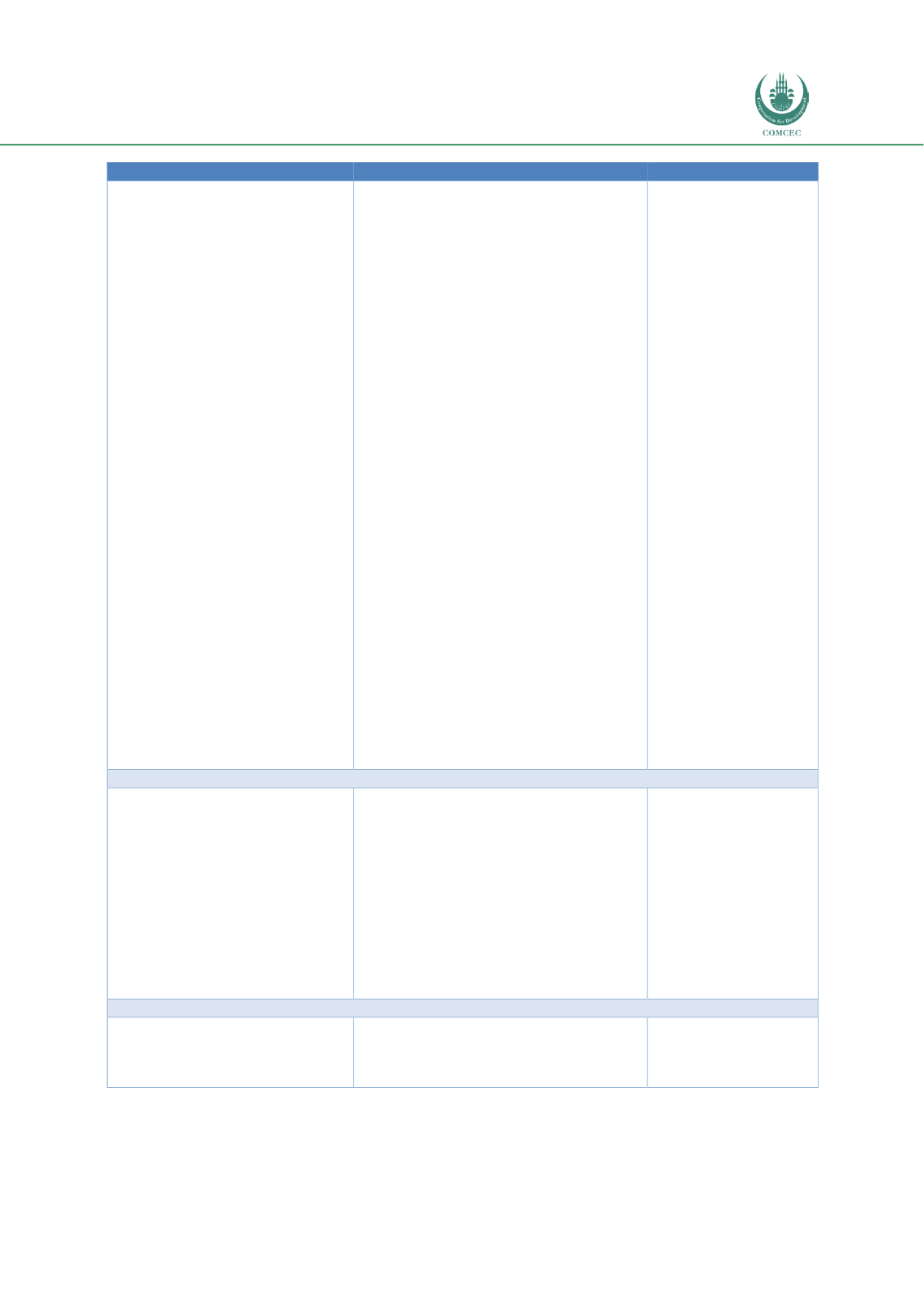

Infrastructure Financing through Islamic
Finance in the Islamic Countries
155
Issues
Recommendations
Implemented by
these accounts bear the risks of
the investments and Islamic banks
are not required to hold much
capital for investments made from
these accounts.
While Sudan has a cooperative
framework in the form of the
Liquidity Management Fund from
which banks can access liquidity
in case they need it (COMCEC
2016), a well-functioning money
market is lacking.
Although the balance sheet
structures of nonbank institutions
such as insurance companies are
more compatible for investments
in long-term projects, the takaful
industry in Sudan parks a large
percentage of its assets in banks.
The overall nonbank financial
institution sector in Sudan is
underdeveloped. Since the balance
sheet structures of these
institutions support investment in
long-term investments, these
institutions have the potential to
increase funding to the
infrastructure sector.
Develop a well-functioning Islamic
money market through which banks can
access liquidity which would further
resolve the problems of liquidity.
Increase the share of investments in
project sukuk by takaful companies to
enhance their contribution to the
infrastructure sector.
Establish other nonbank financial
institutions such as pension funds and
sovereign wealth funds that can invest in
the infrastructure sector.
Establish a specialized infrastructure
financial institution/bank to increase
investments in infrastructure projects.
With the anticipated increased in the role
of the private sector in infrastructure
investment, this institution can also
provide information and advisory
services on Islamic project financing.
Central bank
Islamic banks
Regulatory authorities
Takaful companies
Regulatory authorities
Islamic nonbank
financial institutions
Islamic Capital Markets
The key player in capital markets
is the government that issues
various types of Islamic securities.
Sources of funds for infrastructure
development can be diversified by
issuing retail sukuk.
Develop the market infrastructure for
capital markets. This would also be
required for the further participation of
both retail and institutional investors and
increase the size of the overall capital
market in the country.
Issue retail sukuk
Introduce financial literacy programs to
increase literacy in Islamic finance
Introduce an efficient mechanism for the
delivery and redemption of sukuk issues.
Capital markets
regulatory authority
Issuers (sovereign
and corporate)
Capital markets
regulatory authority
Issuers (sovereign
and corporate)
Financial institutions
Islamic Social Sector
Developing innovative models of
zakat and waqf which can
potentially
provide
social
infrastructure services.
Revive the institutions of zakat and waqf
beyond their traditional roles and develop
innovative models to provide some of the
social infrastructure services.
Public and private
sector zakat and waqf
institutions
















